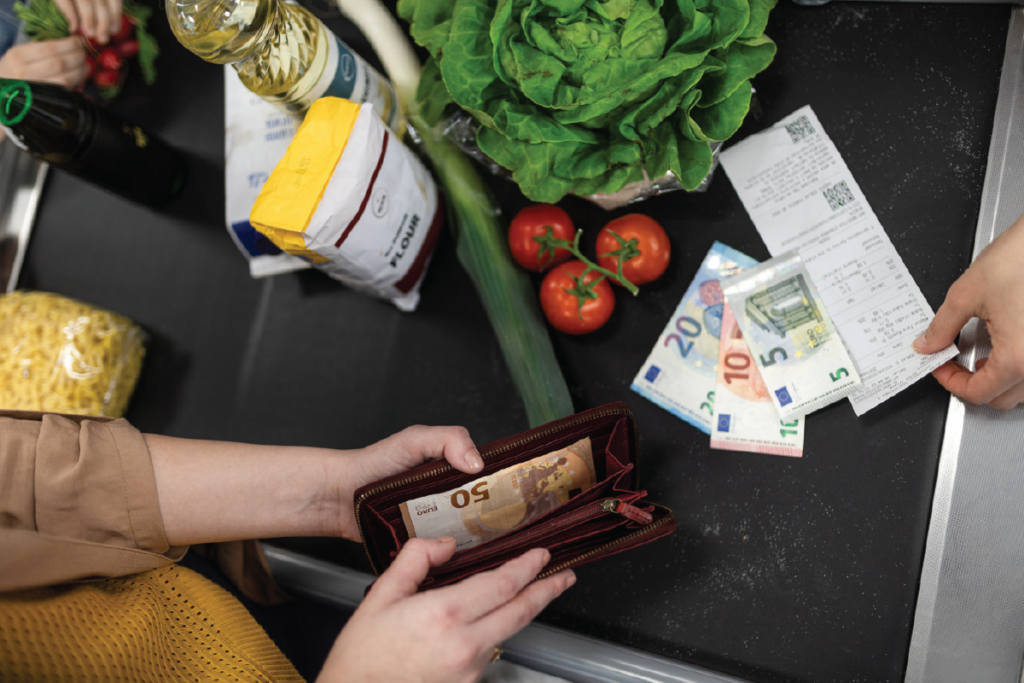The French study all announcements related to unemployment, wage increases and climate impact. These themes make them watch the impact on their wallets. Focus on the latest news.
Wage increases expected!

According to a recent PageGroup survey, average wage increases in 2023 are expected to reach 4.5% in France, nearly offsetting inflation forecast for this year. A study by LHH indicates that half of wages will increase by more than 4.7% in 2023, and 93% of companies are planning salary measures. This contrasts with low wage increases (an average of 0.6% per year) between 1996 and 2018.
Despite the increases, wages have not yet caught up with the rise in the cost of living over the past two years. The increases are often intended to offset inflation and include value-sharing bonuses. However, wage inequalities persist, with varying bargaining power among employee groups, notably blue-collar workers, white-collar workers, technicians and supervisors (OETAM) and executives. In addition, a significant percentage of employees feel that their wages have not increased over the past two years, particularly among women and workers aged 45 to 65.
Business failures slightly increased in August
At the end of August, the cumulative number of failures over the last twelve months was slightly higher than in July, rising from 50,239 to 50,441. This increase in failures affects all sectors of the economy, although unevenly. It also concerns companies of all sizes, but remains less pronounced for micro-enterprises. It is important to note that the annual number of failures remains well below the average recorded over the period 2010-2019, before the impact of the COVID-19 pandemic. Indeed, failures had fallen sharply at the start of the health crisis, due to the temporary change in the dates of characterization and declaration of the state of cessation of payments, as well as public liquidity support measures put in place to avoid this type of situation with an annual cumulative that remains below pre-pandemic levels.
Rebound in June in business creations
In June 2023, there was a recovery in the total number of business creations with an increase of 2.5% compared to the previous month. This rebound follows a 3.2% drop recorded in May. This is due to a 4.2% increase in micro-entrepreneur registrations. On the other hand, traditional business creations recorded a slight decrease of 0.5%, after a drop of 0.8%. In gross terms, over the last twelve months, the total number of businesses created increased by 1.8% compared to the same period of the previous year (from July 2021 to June 2022). Note that in 2022, the creation of 1,062,000 businesses, including 647,100 in the form of individual entrepreneurs who opted for the micro-enterprise regime.
Unemployment rate stable in the second half
The unemployment rate remained stable in the second quarter, with 7.2% of the labor force in France (excluding Mayotte). A slight improvement compared to 7.1% in the first quarter, according to figures published by INSEE. Overall, in the euro zone, the unemployment rate remained unchanged in July compared to June. It remains at a historically low level of 6.4%, according to Eurostat data. This is the lowest rate recorded since the European statistical office began collecting this data in April 1998. Note that this rate has decreased by 0.3 points since June 2022.
9 out of 10 French people will be more careful

According to a poll conducted by Odoxa for France Bleu, a vast majority of French people (87%) say they are more vigilant about their spending due to the rise in prices due to inflation. This concern even affects the most affluent households, among whom 82% say they monitor their spending, even if their monthly income reaches 3,500 euros or more.
To save money, 83% of French people have reduced their budget for everyday consumer goods, such as clothing. In addition, 80% have reduced their outings and leisure activities. A significant number (79%) limit their heating, while 76% watch their car travel to save fuel. In addition, many French people have had to give up buying certain household or food products (73% and 69% respectively). In addition, 74% of respondents say they are reducing their consumption of meat and fish, while 56% are forced to reduce their food portions or to prefer more economical foods.
Distributors authorized to sell gasoline at a “loss”
Prime Minister Élisabeth Borne announced a measure aimed at lowering gas prices by allowing distributors to sell fuel “at a loss” for a few months. This decision follows the rise in fuel prices, exceeding two euros per liter. Contrary to the proposals of the opposition, which called for either a reduction in prices or a reduction in the taxation on gasoline, the government chose this approach. Élisabeth Borne explained that this measure would give concrete results for citizens without subsidizing fuel, even if the sale at a loss is normally illegal. She stressed that each stakeholder, including large companies, had to contribute, while recalling that the State had the responsibility to reduce its deficit and its debt.
Inflation rises due to rising energy prices
After a first increase of 4.3% over one year recorded in July, inflation in France experienced an unexpected increase, rising to 4.9% in August. The first estimate of 4.8% was therefore slightly revised upwards. The latter is mainly due to a sharp increase in energy prices, in particular a 10% increase in electricity prices and a resumption in gasoline prices. Food prices also rose, but at a slightly slower pace compared to July. On the other hand, prices for services and manufactured goods slowed down.
The ECB announces its tenth increase
The ECB decided to raise its key interest rate by 0.25 percentage points to its highest level since 1999. This hike represents a historic event for the European Central Bank (ECB). Despite this tenth consecutive increase since July 2022, the ECB has not explicitly announced a pause in its monetary tightening process. In its statement, it indicates that the Governing Council considers that the ECB’s key interest rates have reached levels that will contribute significantly to bringing inflation back to its target as soon as possible. The ECB has therefore chosen to persevere in this direction, fourteen months after having started the rate hike cycle, bringing to date a total increase of 4.50 percentage points.




